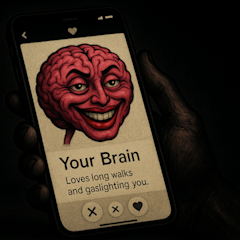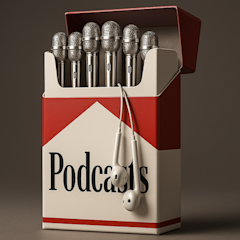When Coffee Means Sex
Remember that Seinfeld episode where George turns down his date’s invitation for “coffee” because the caffeine will keep him up?
He missed the signal.
Coffee didn’t mean coffee. Coffee meant sex.
That one mix-up—coffee versus “coffee”—sums up what Steven Pinker and I talked about on my podcast.
And it explains everything.
“You Know I Know You Know”
If you’re not familiar, Steven’s a Harvard psychologist, linguist, and one of the most celebrated thinkers of our time.
He’s written some of the most important books on how humans think and behave. Now he’s back with his newest book: When Everyone Knows That Everyone Knows.
And that’s what I wanted to talk about.
I’ve done more than 1,500 podcasts and read thousands more books. But this one made me rethink every wink, every laugh, every awkward silence I’ve ever lived through.
Once you see the world like Steven, you realize that nearly everything you do—investing, negotiating, dating, even tweeting—is governed by one thing.
Pinker calls it the logic of “common knowledge”: what I know that you know that I know that you know.
Why We Lie
Why can’t we just be honest with each other? Why do we flirt instead of ask? Why do we say “Netflix and chill” when we mean “I want you”?
Steven put words to something I’ve always felt but never named: We’re not designed to say exactly what we mean. We’re designed to imply.
Direct speech is too costly.
Implication lets us explore the edges without burning the bridge.
Every conversation, every gesture, every sideways glance is a small act of encryption.
The game goes like this:
You say one thing, mean another, and trust that the other person will decode it, WITHOUT either of you ever admitting that’s what’s happening.
What I know that you know that I know that you know.
Why do we do that? Because we’re not just exchanging information. We’re negotiating relationships.
If you proposition someone too directly, you might destroy the relationship when they say no. But if you’re too vague, you miss the moment entirely (like George).
When you tell a cop, “Is there any way we can settle this without all that paperwork?” you’re not technically offering a bribe.
You’re floating a signal—a test.
When someone says, “Want to come up for a drink?” it’s not about the drink. It’s a safe way to ask a dangerous question.
That’s how we survive as social animals.
We test, we imply, we signal.
Everyone’s trying to signal the same thing: common knowledge. Or, what I know that you know that I know that you know.
Why We Bluff
Game theory says life is a game of imperfect information.
You don’t know what the other person knows—or how much they know that you know they know.
That’s why we test boundaries.
That’s why we use euphemisms, jokes, and polite fictions. We’re always feeling for the edges of social risk.
And just like in poker, the key isn’t to be completely honest—it’s to be unpredictable within reason.
If you bluff all the time, you’re a liar. If you never bluff, you’re too predictable.
The winners know how to play in between.
Why We Laugh
Steven says laughter is how humans create common knowledge.
Laughter spreads because it’s visible. Everyone feels it at once. You know they know, and they know you know. That’s how a room becomes one mind.
It’s instant social sync.
That’s why a “shared sense of humor” is such a powerful bonding tool. It signals that your maps of the world overlap.
You see the same absurdities. You belong in the same reality.
And in groups, laughter flattens hierarchies—it says, “We’re equals here.”
That’s why great comedians (and great leaders) use humor not just to entertain, but to establish connection.
Why We Panic
You remember the toilet paper panic of 2020? There wasn’t a shortage until everyone believed there was.
That’s common knowledge in action.
Once everyone knows that everyone knows something, it becomes real.
Same with stock bubbles, crypto frenzies, and political panics.
Markets move not on facts, but on the shared perception of facts.
In finance, they call it “reflexivity.” George Soros’s idea that markets don’t reflect reality, they shape it.
In sociology, it’s called the “Thomas theorem”: If we define situations as real, they are real in their consequences.
That’s the logic of common knowledge.
Facts don’t need to be universally true. They just need to be believed together.
A rumor of scarcity becomes scarcity. A rumor of war becomes war. A rumor of opportunity becomes a bull market.
In that sense, markets aren’t rational systems. They’re social systems running on shared hallucinations.
Why We Imagine
Understanding the hidden code of conversation changes how you see everything.
Human life runs on quiet agreements. Friendship. Money. Marriage. Status. Trust.
They all start in the imagination and become real as more and more people believe in them. Each one depends on people keeping the same story alive, day after day.
That’s what Steven calls common knowledge… the endless loop of what I know that you know that I know that you know.
It shapes every joke, deal, and message we send. It explains why a wink can speak louder than a confession, and why laughter holds a room together.
George missed the cue.
He thought coffee meant caffeine.
Most of us are still learning to read our coffees—still testing the edges of what we can say without saying it.
If you want to see how deep this goes, spend an hour with Steven Pinker and me.
He breaks down the system running beneath every human interaction.










